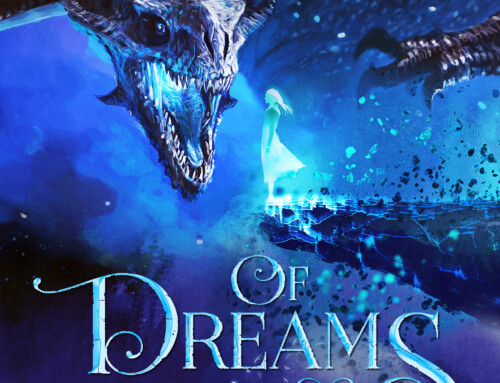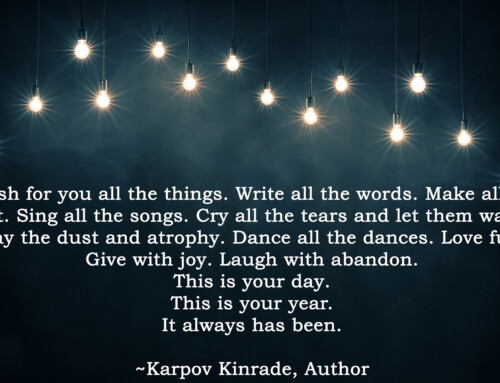 It’s the early 1980s. Sexual freedom is on the rise and is as much political as it is emotional and physical, particularly for the gay community. They’ve fought long and hard to love who they want, when they want and how they want.
It’s the early 1980s. Sexual freedom is on the rise and is as much political as it is emotional and physical, particularly for the gay community. They’ve fought long and hard to love who they want, when they want and how they want.
And then AIDS hits them. It hits them hard and it hits them fast and it starts killing everyone they love. But it only appears to kill gay men.
If this disease, this virus, this plague, if it had struck down children, the citizens of this country would have raised their collective voice and demanded the government, the scientists, the doctors, find a cure. Save their children. Stop the dying.
But it wasn’t our children who were dying.
It was gay men. Men who were already shunned by society for being sick. For being sinful. For suffering from a psychiatric illness. It was only a few years prior that homosexuality was ‘officially’ removed as a mental illness, but public opinion would be slower to change.
And so we let them die. We turned our collective eyes away and pretended that their lives didn’t matter. That their suffering wasn’t our suffering. That their rage and pain weren’t our rage and pain.
We pretended, as a culture, as a society, that their lives didn’t matter.
In the 80s I was a young child. Too young to understand the political ramifications of sexual freedom for gay men. Too young to understand sex at all. I was too young to really know what AIDS was or what it meant to be gay in our culture.
Here’s what I knew by the mid-80s, just after the events of this powerful movie, The Normal Heart, took place. I knew that my biological father was gay. And I knew that was wrong. That he would go to hell for being gay because it was a sin, an unforgiveable sin if he didn’t repent and stop being gay. “Love the sinner, hate the sin.” But what that really meant was hate the sin and pray the sinner stopped sinning or they’d be punished.
And so do you know, to my shame, what my child’s heart prayed for at that time? That my dad would get AIDS so that he would realize he was sinning and repent before he died and went to hell. I was more worried about his soul suffering in the eternal flames of hell than his body suffering from an unforgiving virus on earth.
I’m not that child anymore. I’m a grown woman who outgrew those beliefs once I learned to question them. Once I learned to think for myself.
AIDS isn’t a punishment on gay people any more than breast cancer is a punishment for sinful women or prostate cancer is a punishment for sinful men. It’s all so silly. And so very sad.
I don’t know what my dad went through in the 80s and 90s. Did he lose friends? Lovers? I imagine so. I plan on asking him next time I talk to him. Did he worry about getting sick himself? Did he take precautions?
In this movie, The Normal Heart, Ned Weeks, played by a brilliant Mark Ruffalo, is an outspoken writer who commits his life to raising awareness about the AIDS epidemic before they even know what the disease is. Initially they call it the Gay Cancer, and Dr. Emma Brookner, played by a wheel-chair bound Julia Roberts, spearheads a plea for gay men to keep it in their pants until they know more. This is met with resistance, because they’ve just come out of the closet (even if they haven’t all actually come out of THE closet), as a gay community they are finally free to express themselves and be with others sexually.
awareness about the AIDS epidemic before they even know what the disease is. Initially they call it the Gay Cancer, and Dr. Emma Brookner, played by a wheel-chair bound Julia Roberts, spearheads a plea for gay men to keep it in their pants until they know more. This is met with resistance, because they’ve just come out of the closet (even if they haven’t all actually come out of THE closet), as a gay community they are finally free to express themselves and be with others sexually.
It’s their equivalent of bra burning, I think, to some degree. It’s a way to express their freedom and they refuse to be shoved back in to the sexual closet and gagged and repressed so that the conservative straight community can use this as proof of the ‘wrongness of homosexuality.’ It’s not natural. It’s immoral. It’s sick. And this is the punishment.
Based on the largely autobiographical play of the same name written by Larry Kramer, The Normal Heart explores the rise of AIDS and HIV in the early 80s in New York City as gay activities find themselves in conflict over the best way to fight for their dying friends and lovers. I discovered this movie from a Facebook post by Anne Rice and watched it the night it came out. And I’m so glad I did.
This movie is brilliantly cast and takes you into a loving relationship between Ned and Felix Turner (played by Matt Bomer ,who is phenomenal) as Felix fights for his life against AIDS and Ned fights for funding and awareness to save his lover in a confrontational way that not all of his friends support.
It shows us the inherent conflict in managing a health crisis that is spread sexually at a time when sexual repression was seen as political suicide for their cause. But mostly, I think, it shows us that this love they have for each other, it is the same as the love I have for my husband. It is normal. The heart loves who it loves and that love is as beautiful between two men or two women as it is between a man and a woman.
I cried a lot during this movie, and I thought a lot about my dad, and I thanked whatever god or gods might have been listening to my 6-year-old self that they didn’t answer that particular prayer of mine.
When I first wrote The Forbidden Trilogy, I based the gay couple of Greg and Gary on my dad and his husband, and in part of the Forbidden books and later in the Seduced by Lies spin off, the issue of gay prejudice and bullying is addressed, but for the most part they are characters in a book with many other characters and their ‘gayness’ is not a plot issue or main theme so much as a ‘normal’ part of the world.
And I think it’s important to do this, to have homosexual relationships as ‘normal’ and not as special plot elements, because in my life that’s how it was. As I grew and understood more, I became close to my dad and am still close to him and to me the idea of being gay or not being gay is somewhat irrelevant and normal. I don’t really care one way or the other what someone’s sexual orientation is as long as they’re happy.
 And I know this for certain. Their suffering. Their pain. Their deaths. It is our suffering. Our pain. Our deaths. It affects us all. Every. Single. One. Of. Us.
And I know this for certain. Their suffering. Their pain. Their deaths. It is our suffering. Our pain. Our deaths. It affects us all. Every. Single. One. Of. Us.
Because we are all part of each other. We are all connected on so many levels and we cannot live as autonomous creatures cut off from the suffering of another just because we don’t agree with their choices or their sexuality or like who they are. It doesn’t matter. When one of us suffers, we all suffer.
And so we have to fight. We have to raise our voices. We have to put aside our petty prejudice and learn to love others if we ever hope to save ourselves.
I hope each one of you will find a way to watch The Normal Heart on HBO. I’d love to hear from you. How did the movie affect you? What are your thoughts?
For those of you who do feel homosexuality is a sin, or who do not support gay marriage or the right for homosexuals to live as they want, why? How does their love hurt you in any way? How does it stop you from having the kind of family dynamic you prefer? What do you get out of preventing two people who love each other from being together? How does that serve your God? Your family? Your life?
Please note we will be moderating comments and while we are open to discussion with differing opinions, we will not tolerate any hint of gay bashing, hate talk or anything of the kind. Keep it civil.
**This is the first post in a series of posts called “Let’s Talk About Sex” that we will be exploring this summer, so stay tuned for more on the subject of sex and so much more!**






I love that you are talking about this because LOVE is normal, no matter whether it occurs Bertram two men, two women or a man and a woman. Love bins us all and when wet finally accept all is facets add normal we will be s much better and stronger society.